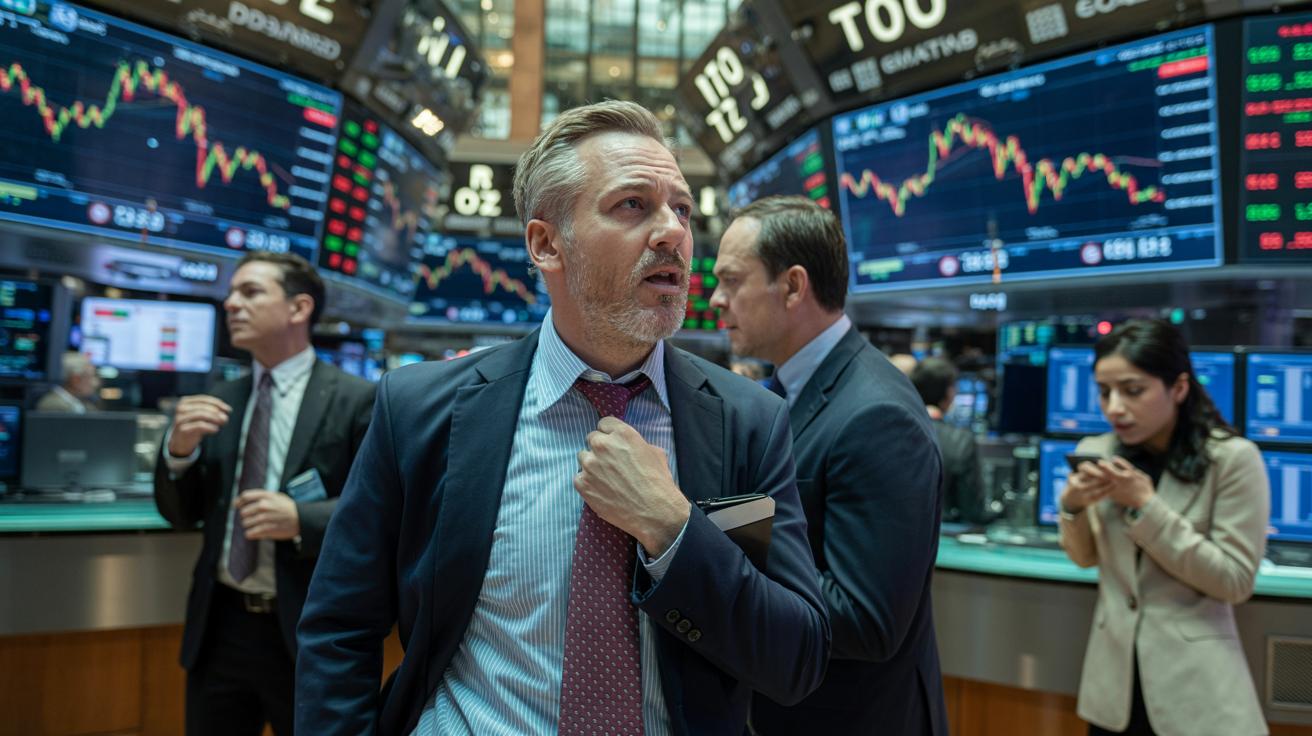What You Need to Know
- 📉 Markets Tumble: The Hang Seng index leads declines in Asia-Pacific, falling over 2%, as investor sentiment is hit by geopolitical tensions and economic decisions.
- 🏛️ Fed Holds Rates Steady: The U.S. Federal Reserve keeps interest rates unchanged, signaling two potential rate cuts later this year amid inflation concerns.
- ⚔️ Geopolitical Tensions Rise: President Donald Trump considers a military strike on Iran, exacerbating global market instability and affecting energy prices.
- 💱 Currency Fluctuations: The Vietnamese dong hits a record low against the dollar, reflecting the strengthening U.S. currency and regional economic pressures.
- 🏆 Investment Opportunities: Aberdeen Investments favors China and Europe for their robust policy tools, while gold emerges as a safe haven amid uncertainty.
In recent events, the Asia-Pacific markets have experienced significant fluctuations, driven by both geopolitical tensions and macroeconomic decisions. As investors closely monitor the U.S. Federal Reserve’s latest policy decisions, other factors such as the ongoing conflict between Israel and Iran have further complicated the economic landscape. This article delves into the interplay of these variables and their impact on global markets, offering a comprehensive analysis of current events and highlighting the intricate connections between international politics and economic performance.
Fed’s Steady Hand: Interest Rate Decisions and Economic Outlook
The U.S. Federal Reserve’s recent decision to maintain its interest rates has kept the benchmark rate unchanged at 4.25%-4.5%. This decision was anticipated by many, as the Fed aims to gauge the effects of President Donald Trump’s tariffs on inflation before making any major policy shifts. Despite the current rate hold, the Fed has indicated the possibility of two rate cuts later this year, reflecting their cautious approach to economic stability.
Fed Chair Jerome Powell emphasized in a statement that while uncertainty about the economic outlook has diminished, caution is still warranted. The Fed’s decision underscores the delicate balance between fostering economic growth and controlling inflation. Additionally, the committee’s note highlighted a lowered GDP outlook and an increased inflation forecast, signaling potential challenges ahead. This steady approach aims to provide a buffer against the risk of stagflation, which could severely impact consumer confidence and economic growth.
Geopolitical Tensions: The Israel-Iran Conflict
As the world watches the U.S. Federal Reserve’s decisions, another critical factor impacting global markets is the rising tension between Israel and Iran. The conflict has weighed heavily on investor sentiment, introducing a layer of unpredictability in financial markets. U.S. President Donald Trump’s recent meetings with national security advisors indicate the seriousness of the situation, as discussions around a potential military strike on Iran have intensified.
The possibility of military action has far-reaching implications, not only for regional stability but also for the global economy. Energy markets, in particular, are sensitive to such geopolitical dynamics, given the region’s significance in global oil supply. Investors remain on edge, as any escalation could lead to fluctuations in oil prices, which would, in turn, affect other sectors. The intersection of geopolitical and economic factors continues to create a complex tapestry of risks and opportunities for investors worldwide.
Market Reactions: Asia-Pacific Indices and the U.S. Dollar
In response to both geopolitical tensions and the Fed’s decision, Asia-Pacific markets have shown varied reactions. Notably, Hong Kong’s Hang Seng index experienced a decline of over 2%, reflecting investor anxiety. Meanwhile, mainland China’s CSI 300 and Japan’s Nikkei 225 also saw declines, indicating a broader regional impact.
Conversely, South Korea’s Kospi index managed to edge up slightly, showing resilience amid the turbulence. Australia’s S&P/ASX 200 remained flat, highlighting a cautious market sentiment. In the currency markets, the U.S. dollar’s recent strengthening has put pressure on Southeast Asian currencies, with the Vietnamese dong reaching a record low against the dollar. This table summarizes key market movements:
| Index/Currency | Change |
|---|---|
| Hang Seng | -2% |
| CSI 300 | -0.82% |
| Nikkei 225 | -1.02% |
| Kospi | +0.19% |
| Vietnamese Dong | -0.13% |
Investment Strategies: Navigating a Volatile Environment
In light of these developments, investors are exploring strategies to navigate the volatile market environment. Aberdeen Investments has identified China and Europe as favorable regions for investment, citing strong policy tools capable of offsetting negative impacts from tariffs. The asset manager also highlighted South Korea’s equity markets, noting attractive opportunities fueled by growth-oriented reforms and improving corporate governance.
With the Fed’s rate decisions and geopolitical tensions creating a volatile backdrop, investors are urged to consider diversification and risk management in their portfolios. Gold has emerged as a potential safe haven, with DoubleLine Capital CEO Jeffrey Gundlach predicting that gold prices could reach $4,000 soon. As institutions increase their gold purchases amid geopolitical uncertainty, it underscores the importance of strategic asset allocation during turbulent times.
As we continue to observe the unfolding events in both the economic and geopolitical arenas, the interconnectedness of global markets becomes increasingly apparent. The decisions made by central banks, coupled with geopolitical developments, have profound implications for investors worldwide. How will these dynamics shape the future of international relations and economic growth, and what strategies will investors employ to navigate the complexities of an ever-changing landscape?
Did you like it?4.4/5 (22)







7 comments
hannah
Gold prices to $4,000? Time to dig up those old jewelry boxes! 😉
alicestardancer
Why does the Vietnamese dong keep falling? Does this mean my trip there will be cheaper? 😂
Addison1
If Trump hits Iran, will we see oil prices go through the roof again? 🛢️
HaleyFlare
Fed holding rates steady was expected, but how will potential rate cuts affect the market later this year?
oscar
Thank you for breaking down such a complex situation. Helps me understand the interconnectedness of these events.
Sophia
So much happening at once! How do you think the market will react if Trump decides to strike?
cooper6
Wow, Trump’s considering a military strike on Iran? This could really shake things up! 😮